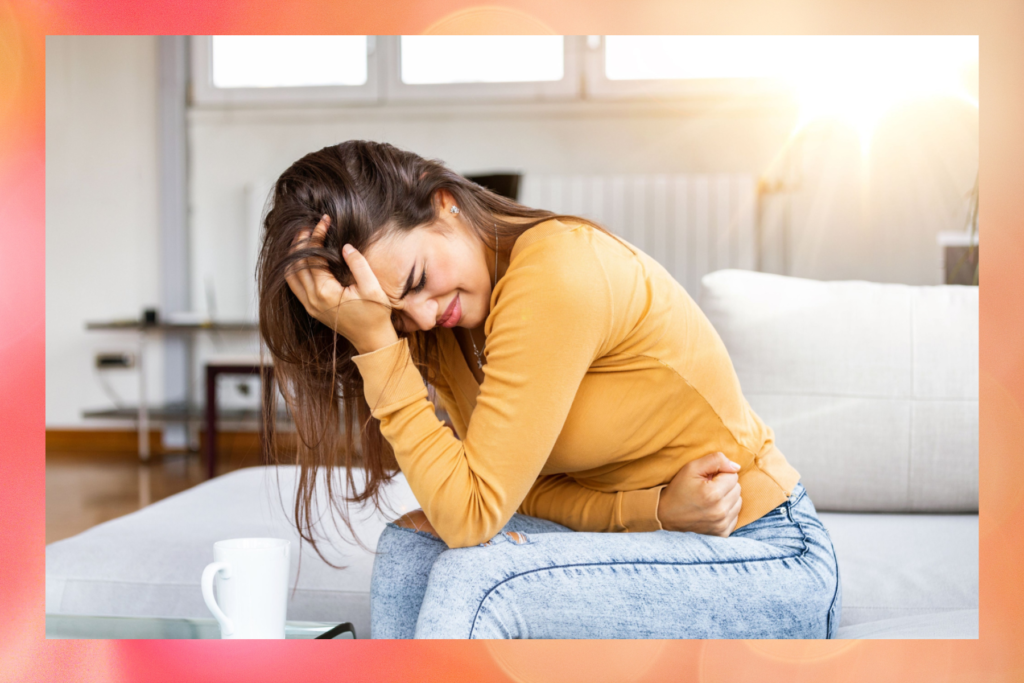
Have you seen one of those commercials where a woman is on her period and is just happy without a care in the world? Cramps? Who is she? PMS? I don’t know her. I want to shed some light on some of the period health rituals and celebrations that South Asian cultures have practised for centuries, that we have now forgotten.
Well, guess what? Those commercials are actually not wrong. That is how happy menstruation can be. While cramps and PMS have been normalized as silent suffering to be experienced by those who menstruate, Vedas (Atharva Veda: Ayurveda: Charaka Samhita) suggest symptoms such as irregular menstruation, lower back pain, and period pains point to signs of imbalance in the body that can be treated.
[Read Related: The Period is Political and Religious in India]
Practices For Better Period Health
While there are lifestyle factors that affect this as well, here are some teas that have been used for each phase of the menstrual cycle to help keep our bodies in balance:
- Menstrual Phase: Turmeric Ginger Tea with Fennel Seeds
- This combination is anti-inflammatory and rich in potent phytochemicals, which are effective in calming the cramps and reducing bloating.
- Follicular Phase – Tulsi Black Tea
- Helps in metabolizing estrogen and boosting immunity. You may also want to eat iron-rich foods to support the blood loss in the previous phase.
- Ovulation Phase – Shatavari Tea with Matcha
- Enhances ovulation and helps you harness extra energy from increased estrogen production.
- Luteal Phase – Ginger Tea with Ashwagandha
- This combination helps you battle that brain fog by enhancing cognition and balancing stress levels as well as increasing vitality.
Cramps? Methi (Fenugreek) seeds have proven beneficial for easing period cramps. Soak the seeds overnight and drink the water, along with seeds if possible, in the morning. Combine this with a warm sesame seed oil massage and you can kiss your cramps goodbye! Rajaswala Paricharya (Atharva Veda: Ayurveda), texts detailing care during menstruation, has comprehensive care listed around exercise, sex, diet, sleep, and bathing practices during menstruation.
Additionally, there are yogic practices to help reduce stress experienced by the body during menstruation. As a yoga teacher, I would recommend Inner Silence meditation, Antar Mouna, to help ease stress and anxiety.
Rituals
When you get your period, your body is exhibiting the power of creation that is responsible for the existence of humanity — if that doesn’t call for a party then I don’t know what does. Some cultures in South Asia and South East Asia throw a ‘first-period’ party, and have been doing so for centuries. It is known by various names across the Indian subcontinent – Peddamanishi Pandaga, Ritushuddhi, Ritu Kala Samskaram, Tuloni Biyah, and many more. The menstruator is celebrating a transition into the next stage of life, and is is adorned in jewelry, fed nutritious food, undergoes a beauty ritual, dressed in a silk garment, and given gifts.
[Read related: How My ‘Ritushuddhi’ Ceremony Affirmed My Indian-American Identity]
A woman’s first period should be celebrated and treated with the reverence it deserves.
Menstruation is an essential and beautiful part of life. Why do we have to whisper and feel uncomfortable when talking about it? There is a lot of shame and misogyny associated with periods.
Let me shed some light on it as to why.
When ancient scripts and practices around menstruation were being written such as Ayurveda and Vendidad, it was said that when a person is menstruating, their body is in an altered state. Their body is busy performing the natural process of removing dead matter/unfertilized eggs. A menstruating person’s aura is in an altered state because it is busy performing this task, which conflicts with the vibrational frequencies of prayers.
This is why menstruating people were secluded at home and not allowed in temples and prayer halls. So that they can rest and revive, and perform this natural process effectively. Over time, however, people erroneously viewed them as impure, unclean, and untouchable during menstruation. It’s like a game of telephone gone horribly wrong. In post-colonial times, these ancient practices (in their original form) were viewed as ignorance and as relics of superstitious people.
[Read related: How to Talk to Daughters About Periods]
We must change our understanding of the fundamentals, not the fundamentals itself. We harness the power of a portal between worlds. So, take the time to take care of your body for the wonderful things it can do.
I have to credit my mother, a gynecologist, for all of this knowledge. Thanks to her, I have never experienced cramps and my cycle lasts only two to three days. Now, I am passing this knowledge on to you. All I want is for future generations to know that this divine power is not something to be ashamed of but to be celebrated and be taken care of.
Disclaimer: These remedies for period health are generalized in nature. For personalized treatment of irregular menses or other gynecological problems, please consult a doctor.
Photo Credit: Shutterstock




